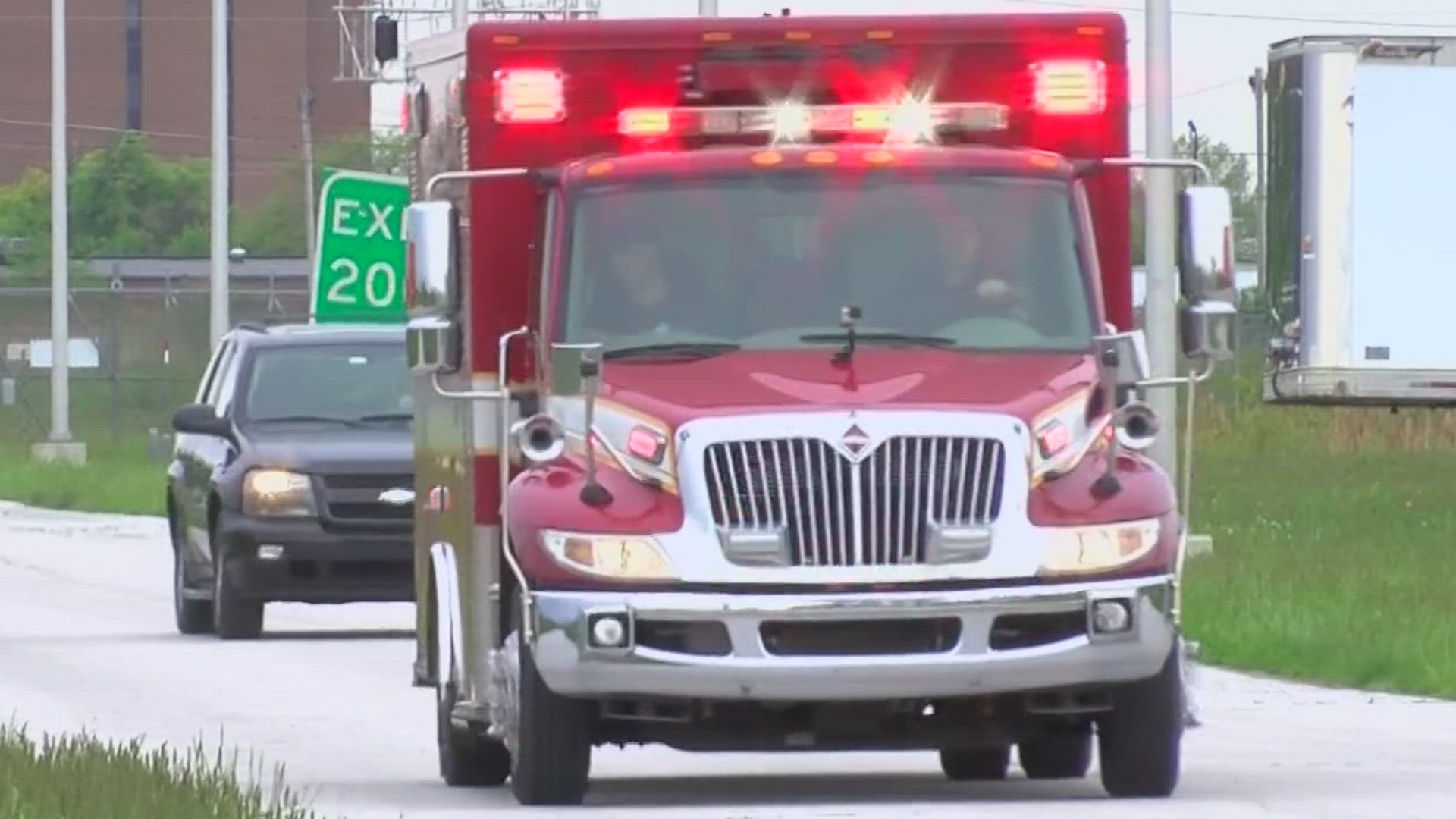TOLEDO, Ohio — When a call goes out for a shooting victim, emergency medical services rush to get the injured to the hospital.
But sometimes, when they arrive, the scene is missing a crucial element: the victim has attempted to drive themself to the hospital or tasked someone else with doing so.
"We show up and there is evidence and there are witnesses, but there's no suspect or no victim there," Lt. Paul Davis, a public information officer with the Toledo Police Department, said. "And then we get a call a few minutes later and someone just showed up at the hospital with a gunshot wound."
These scenarios sometimes happen because victims are trying to get away from a hostile situation and their fight or flight response activates, Davis said.
But transporting yourself to the hospital is a serious risk. The victim is betting on themselves to make it to the emergency room in time, instead of relying on trained professionals.
"If somebody is thrown in the back of a car and they have significant injuries and they don't have anyone treating them, stopping the bleeding, just basic life support methods, they can bleed out very quickly," Pvt. Sterling Rahe, a public information officer for the Toledo Fire & Rescue Department, said.
Davis and Rahe said they have seen multiple examples of people attempting to drive to the hospital after being shot and crashing their vehicles on their way to get help. In some cases, they don't make it to the hospital alive.
Rahe also said in instances where someone else drives the victim, the victim may just be dropped off on the ground in front of the hospital while their transport drives away; especially if those driving the victim were involved in criminal activities.
"We have incidents of people dropping them off in front of fire stations. just letting them out and we find them there," Rahe said.
Dr. Brian Kaminski, the vice president of quality and safety for ProMedica, said first responders don't care why you were shot, they just want to see you live another day.
"Often, we have very limited information to go from other than a gunshot has occurred and we're at that point hyped focused on what type of injury it is, what the patient's vitals look like, so we're going to treat the patient no matter what," Kaminski said.

